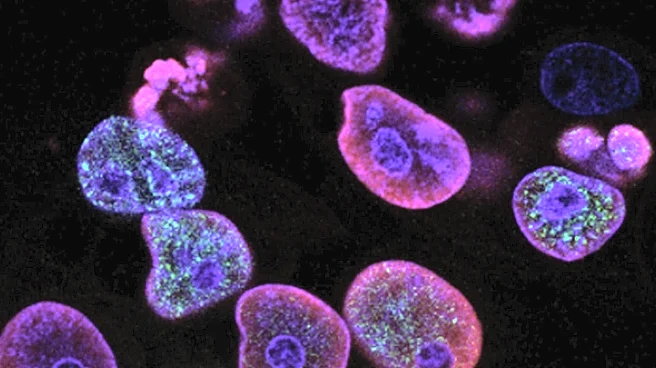What's Happening?
A recent study has revealed that low-carbohydrate diets, often used in cancer therapy to restrict glucose and slow tumor growth, may inadvertently promote metastasis, particularly to the lungs. The research, published in Cell, found that glucose restriction
causes tumor cells to secrete exosomal TRAIL, which creates an immunosuppressive environment conducive to metastasis. This discovery challenges the current understanding of cancer metabolism and suggests that while such diets can reduce primary tumor size, they may also facilitate the spread of cancer cells to distant organs.
Why It's Important?
The findings have significant implications for cancer treatment strategies, highlighting the need to balance tumor suppression with the risk of metastasis. This research underscores the complexity of cancer biology and the potential unintended consequences of metabolic therapies. For patients and healthcare providers, understanding these risks is crucial for making informed treatment decisions. The study also opens new avenues for therapeutic intervention, such as targeting the PVR-TIGIT signaling axis to mitigate metastasis while preserving the benefits of glucose restriction.
What's Next?
Future research will focus on developing strategies to counteract the pro-metastatic effects of glucose restriction. The study suggests using TIGIT-blocking antibodies to prevent metastasis while enhancing tumor regression. Additionally, plasma exosomal TRAIL has been identified as a potential biomarker for predicting metastasis risk, offering a non-invasive method for early detection. These findings could lead to more personalized cancer treatment plans, combining metabolic therapy with immunotherapy to optimize outcomes.














